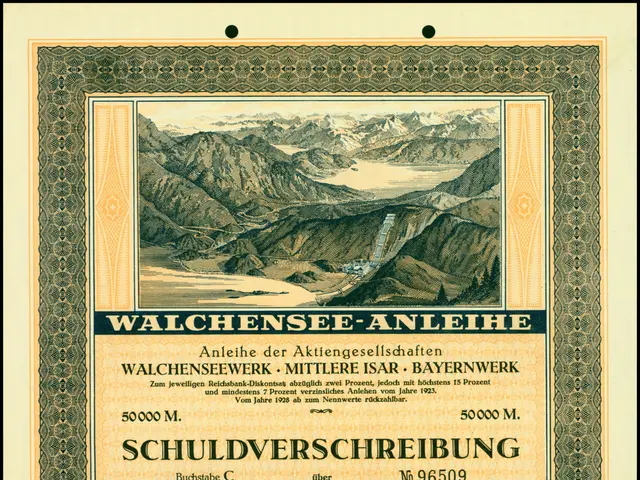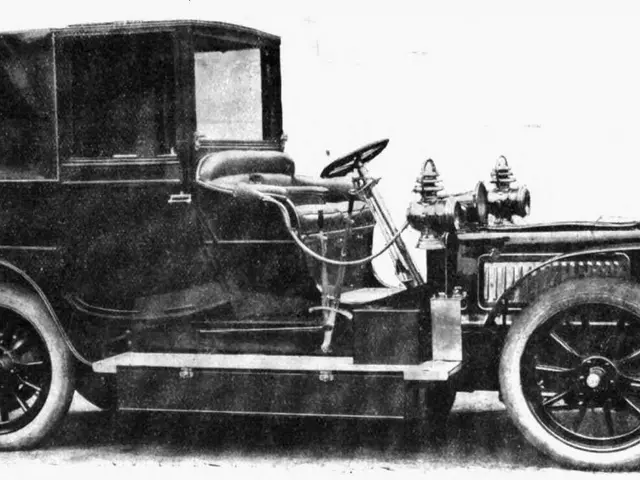Trade Clash Intensifies: Europe and China Strike Back Against Trump's Tariffs
- China proposes counter-tariff retaliation to Trump: EU tariff list
Let's dive into the fresh brew of international trade wars, as the globe grapples with escalating conflicts between economic giants.
The EU has shown signs of backing off from imposing additional tariffs on American whiskey amidst the ongoing global trade conflict. EU Commission sources reveal that bourbon whiskey no longer features on the initial list of countermeasures for the tariff dispute with the USA, contrary to initial plans.
Come Wednesday, the EU will cast their votes on these countermeasures. Recently, US President Donald Trump rejected a proposal from Brussels aimed at negotiating the removal of all tariffs on industrial goods. The trade dispute between China and the USA continues to heat up, with both economies staring down the barrel of ever-increasing tariff hikes.
Wednesday also marks the day when new US tariffs against numerous trading partners take effect. The EU faces a 20% duty rate, whilst other countries may face even steeper tariffs. Despite recent market recuperations, Trump's aggressive tariff policy continues to sow uncertainty across the globe.
This all stems from the EU’s response to new US tariffs on steel and aluminum imports. The EU fears that these measures will impact exports worth €26 billion, potentially netting the USA an additional €6.5 billion in tariff revenues. But, it seems that the lobbying efforts of nations like France and Italy have succeeded in sparing bourbon whiskey from counter-tariffs. Although, Trump had warned of 200% counter-tariffs on wine, champagne, and other alcoholic beverages if the EU refused to reconsider.
Brace for a smaller-scale conflict, as the EU’s countermeasures are expected to be nowhere near as extensive as the US tariffs on steel and aluminum imports. Commerce cooperation still remains a possibility, given that damaging one's own companies through countermeasures is a delicate affair.
EU leaders stress that they're ready to negotiate and find a resolution. There's even a possibility that the EU could purchase American energy in exchange for relief from US tariffs. "We have a trade deficit with the European Union of $350 billion – and that will disappear quickly," Trump claimed. "They must buy our energy – because they need it."
However, not everyone's on board with this proposal. Energy expert Claudia Kemfert dismissed Trump’s suggestion that the EU could save €350 billion in tariffs by importing liquefied natural gas (LNG). She maintains that "It's not a great deal." These imports would involve "very polluting and expensive fracking gas," which Europe should avoid. Instead, Europe should focus on reducing its gas consumption. The EU can source gas from various countries other than the US.
As trade tensions between Trump and Beijing continue to escalate, China has vehemently threatened to retaliate if the US imposes new tariffs. The Chinese Ministry of Commerce declared that China will respond with countermeasures to protect its own rights and interests. Trump seems unfazed and claims to have faith that China will eventually cave and engage in negotiations. "We're waiting for their call. It will happen," Trump announced.
Trade conflicts bring about numerous implications, particularly concerning trade diversions and tariffs. For example, the US tariffs on Chinese goods have caused trade diversions to European markets, raising concerns about potential overcapacity and dumping in sectors such as solar panels. Similarly, Chinese shipping companies are reselling energy products initially destined for the US to European markets, demonstrating the impact of trade tensions on global supply chains.
The ongoing trade wars threaten to reshape global trade dynamics, with potential consequences for economic globalization and international trade relationships. Both China and the US are forging alliances and advocating for their positions while navigating this intricate web of economic diplomacy and trade complexities.
Keywords:- Trade Conflict- EU- Donald Trump- China- Retaliatory Tariffs- Brussels- US President- USA- Countermeasures- Additional Tariffs- Steel- EU Commission- Conflict- Claudia Kemfert- France- Italy- Wine- Beijing- Beverages
Enrichment Data:1. Trade tensions have caused Chinese companies to divert goods, including solar panels, to European markets due to US tariffs on imports from China.2. The EU has proposed imposing significant tariffs on Chinese electric vehicle imports as a response to ongoing trade disputes.3. Retaliatory tariffs have been a common tool in the trade conflicts between the US, EU, and China, targeting various goods such as steel, aluminum, and bourbon whiskey.4. Energy products are being redirected from the US to European markets due to trade tensions, reflecting the impact on global supply chains.5. China is seeking to form alliances and counter US protectionist measures and "bullying actions."
- The European Union, ready to negotiate and find a resolution, even considers purchasing American energy in exchange for relief from US tariffs, but Energy expert Claudia Kemfert disagrees with the idea, insisting that it's not a great deal due to the polluting and expensive nature of the fracking gas.
- Despite the EU's decision to spare bourbon whiskey from counter-tariffs, US President Donald Trump had threatened potential 200% counter-tariffs on wine, champagne, and other alcoholic beverages if the EU refused to reconsider.
- China, vehemently threatened to retaliate if the US imposes new tariffs, has vowed to respond with countermeasures to protect its own rights and interests, mirroring the retaliatory tariffs imposed by the EU and the US in the ongoing trade conflicts.








